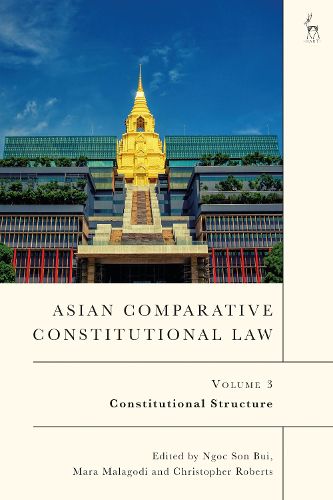Readings Newsletter
Become a Readings Member to make your shopping experience even easier.
Sign in or sign up for free!
You’re not far away from qualifying for FREE standard shipping within Australia
You’ve qualified for FREE standard shipping within Australia
The cart is loading…






This is the third in a four volume set that provides the definitive account of the major issues of comparative constitutional law in Asia.
Volume 3 looks at the both the formal and functional aspects of constitutional structure in 18 Asian jurisdictions.
It considers formal aspects such as; - legislative-executive relations - the court system - constitutional review (including specialist, ordinary judicial review, and non-judicial institutions of constitutional review); - central-local relations and federalism; - the role of the political parties; - the role of the military; and - independent institutions, such as audit, election, and anti-corruption institutions.
It also answers questions about functional aspects of constitutional structure including; - How do these structural institutions work in practice? - What are the factors, such as political dynamics, local culture, ethnic diversity, and social structure, influence their operation?
The jurisdictions covered are: Bangladesh, China, Hong Kong, Indonesia, Japan, Laos, Macau, Malaysia, Mongolia, Myanmar, North Korea, Pakistan, the Philippines, Singapore, South Korea, Sri Lanka, Taiwan, and Thailand.
$9.00 standard shipping within Australia
FREE standard shipping within Australia for orders over $100.00
Express & International shipping calculated at checkout
This is the third in a four volume set that provides the definitive account of the major issues of comparative constitutional law in Asia.
Volume 3 looks at the both the formal and functional aspects of constitutional structure in 18 Asian jurisdictions.
It considers formal aspects such as; - legislative-executive relations - the court system - constitutional review (including specialist, ordinary judicial review, and non-judicial institutions of constitutional review); - central-local relations and federalism; - the role of the political parties; - the role of the military; and - independent institutions, such as audit, election, and anti-corruption institutions.
It also answers questions about functional aspects of constitutional structure including; - How do these structural institutions work in practice? - What are the factors, such as political dynamics, local culture, ethnic diversity, and social structure, influence their operation?
The jurisdictions covered are: Bangladesh, China, Hong Kong, Indonesia, Japan, Laos, Macau, Malaysia, Mongolia, Myanmar, North Korea, Pakistan, the Philippines, Singapore, South Korea, Sri Lanka, Taiwan, and Thailand.